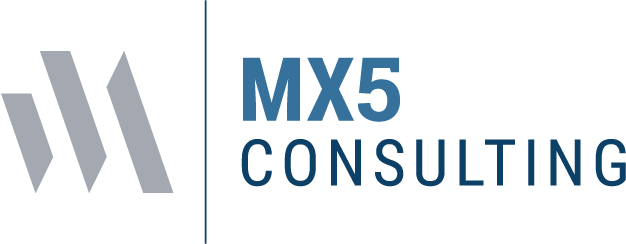In today’s fast-moving, high-stakes business environment, even experienced leaders benefit from a trusted advisor who challenges their thinking, sharpens their leadership, and helps unlock greater performance. The best business coaches for executives do much more than offer advice they provide structured feedback, help uncover blind spots, and create a pathway for long-term professional transformation. With the right coach, executives can strengthen their decision-making, align teams more effectively, and drive results that make a measurable impact across the organization.
Hiring an executive coach is a strategic investment, not just in individual leadership, but in the overall performance of a business. However, with so many coaching services available, choosing the right one can be overwhelming. This guide explains the key differences between executive coaching and other coaching styles, how to evaluate coaching services, and what to look for when finding an experienced executive coach in the USA.
Why Top Executives Seek Business Coaches
Top executives often operate in isolated environments where few people challenge their ideas or provide honest feedback. That’s where coaching comes in. A skilled executive coach provides a confidential and constructive space for leaders to reflect, grow, and improve their effectiveness. Executives typically seek coaching when they face significant transitions, such as stepping into a larger leadership role, leading organizational change, managing high-stakes decisions, or preparing for succession.
Beyond support during transitions, executive coaching also helps leaders build stronger communication skills, increase emotional intelligence, and lead high-performing teams. Coaches guide their clients to identify behavioral patterns that may hinder progress and help establish new habits that align with personal and organizational goals. Importantly, the benefits of coaching extend beyond the executive it positively influences the broader company culture and improves team engagement and alignment.
Performance Coaching for Business Leaders: What It Means
Performance coaching for business leaders focuses on tangible results. It is designed to help leaders consistently achieve high performance in demanding environments. Unlike general mentorship or informal advising, performance coaching is goal-driven and emphasizes accountability, growth, and sustainable success. It is especially useful for leaders looking to close the gap between strategy and execution.
Business leaders who invest in performance coaching typically work on refining specific leadership capabilities such as strategic thinking, team management, and decision-making under pressure. Coaches in this field often use structured frameworks, assessments, and regular feedback cycles to track progress. While executive coaching can be broad in focus, performance coaching is laser-focused on measurable business outcomes. The emphasis is on helping leaders not just lead, but lead effectively and efficiently with clear performance benchmarks in mind.
Career Coaching vs. Executive Coaching: What’s the Difference?
Understanding the difference between career coaching and executive coaching is essential when choosing the right support. Career coaching is primarily focused on helping professionals navigate transitions, such as changing industries, seeking promotions, or clarifying their career direction. It is often shorter in duration and geared towards individuals who are still advancing toward leadership roles. The core objective is personal career development and job satisfaction.
In contrast, executive coaching is intended for high-level professionals who already hold significant leadership responsibilities. It dives deeper into strategic challenges, leadership identity, stakeholder management, and organizational impact. Executive coaching engagements are usually longer and more intensive, often lasting several months. The goal is not just to advance the individual’s career, but to improve their influence, decision-making, and alignment with broader business goals. While career coaching helps people find the right job, executive coaching helps them excel once they’re in it.
What to Compare When Evaluating Executive Coaching Services
When choosing an executive coach, it’s important to look beyond marketing and dig into the details of what they offer. Experience is one of the most critical factors. Coaches who have held executive positions themselves or worked closely with leaders across industries bring valuable context and insight to their sessions. Additionally, coaches with certifications from respected organizations like the International Coaching Federation (ICF) are often better equipped with structured approaches and ethical guidelines.
It’s also essential to examine the coach’s methodology. Some coaches use personality assessments, 360-degree feedback, or emotional intelligence testing to customize development plans. Others focus on real-time problem-solving and accountability structures. Look for a coach who uses a process that aligns with your learning style and business goals.
Another key factor is how the coach measures success. Good coaching programs should include defined milestones and progress indicators that can be tracked throughout the engagement. Trust and chemistry also play a big role. The best business coaches for executives are those who can build a safe space for honest conversations while still pushing their clients to stretch and grow. Lastly, pricing should be considered alongside ROI. A more expensive coach may deliver higher value if they help you achieve lasting leadership impact.
Top Executive & Leadership Coaches to Know
The field of best business coaches for executives includes both individual coaches and firms that work with corporate leadership teams. Well-known names like Marshall Goldsmith, who specializes in stakeholder-centered coaching, and John Mattone, known for his intelligent leadership model, have built strong reputations for delivering transformative results. Others, like Fred Kofman and Steve Mesler, bring a blend of performance psychology and ethical leadership to their coaching style.
There are also high-performing executive coaching platforms such as BetterUp and SparkEffect, which offer scalable solutions and deep personalization. These platforms use data-driven insights and coach-matching algorithms to ensure a better fit between client and coach. Choosing between an individual coach and a coaching firm depends on the complexity of your needs. For broader leadership development programs or multi-leader engagements, firms may be better equipped. For more personalized, one-on-one coaching, an independent coach with a proven track record might be the right choice.
How to Find an Experienced Executive Coach in the USA
Finding the right executive coach in the USA starts with defining your goals. Knowing what you want to achieve from coaching whether it’s improving team performance, navigating a major transition, or strengthening your leadership presence will help you choose a coach who specializes in those areas. Personal recommendations from colleagues or board members are one of the best ways to find trusted coaches. A referral from someone who has worked with the coach can give you confidence in their capabilities.
You can also explore directories and coaching platforms that screen for quality and certifications. The International Coaching Federation (ICF) and EMCC offer searchable databases of certified coaches across the U.S. Many coaches also provide a free discovery session to explore fit, which is a great way to test compatibility before committing.
When evaluating potential coaches, ask about their previous work with executives at your level, their coaching style, how they handle confidentiality, and how they measure success. Request case studies or references if available. Starting with a short pilot engagement can also help you gauge the effectiveness of the coaching relationship before entering into a long-term agreement.
It’s also important to align coaching with your organization’s leadership development goals. If the company is sponsoring the coaching, involve key stakeholders such as HR or a board member to ensure alignment. Some coaching engagements include progress updates to stakeholders, while others remain completely confidential between coach and client. Choose the model that fits your leadership context and growth strategy.
Conclusion
The journey to becoming a more effective, strategic, and impactful leader starts with choosing the right partner. The best business coaches for executives don’t offer cookie-cutter solutions they tailor their support to the realities of your leadership role and the outcomes you want to achieve. Whether you’re looking to improve performance, navigate change, or sharpen your strategic influence, a skilled executive coach can be the catalyst that helps you move from good to exceptional.
By understanding the difference between performance coaching, career coaching, and executive coaching, and by carefully evaluating the credentials, methods, and style of potential coaches, you’ll be well-positioned to make a high-impact investment in your leadership future. Whether you work with a well-known name or discover a rising star in the coaching field, what matters most is that you find someone who challenges you, supports you, and helps you lead with purpose and clarity.




